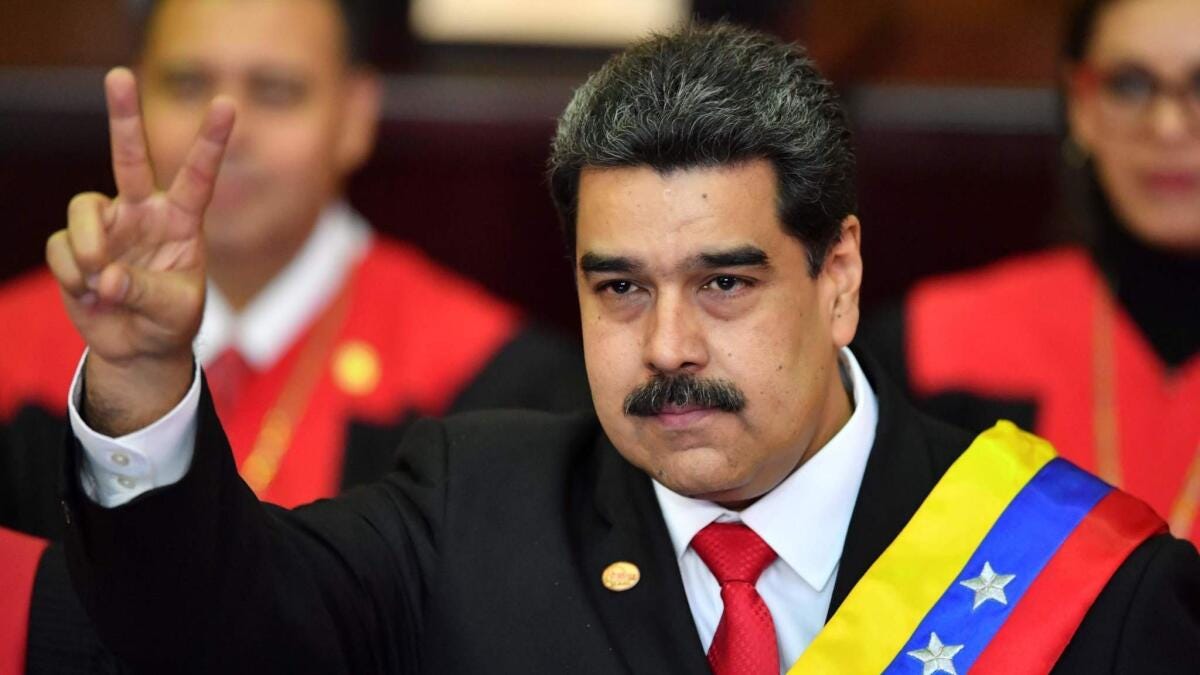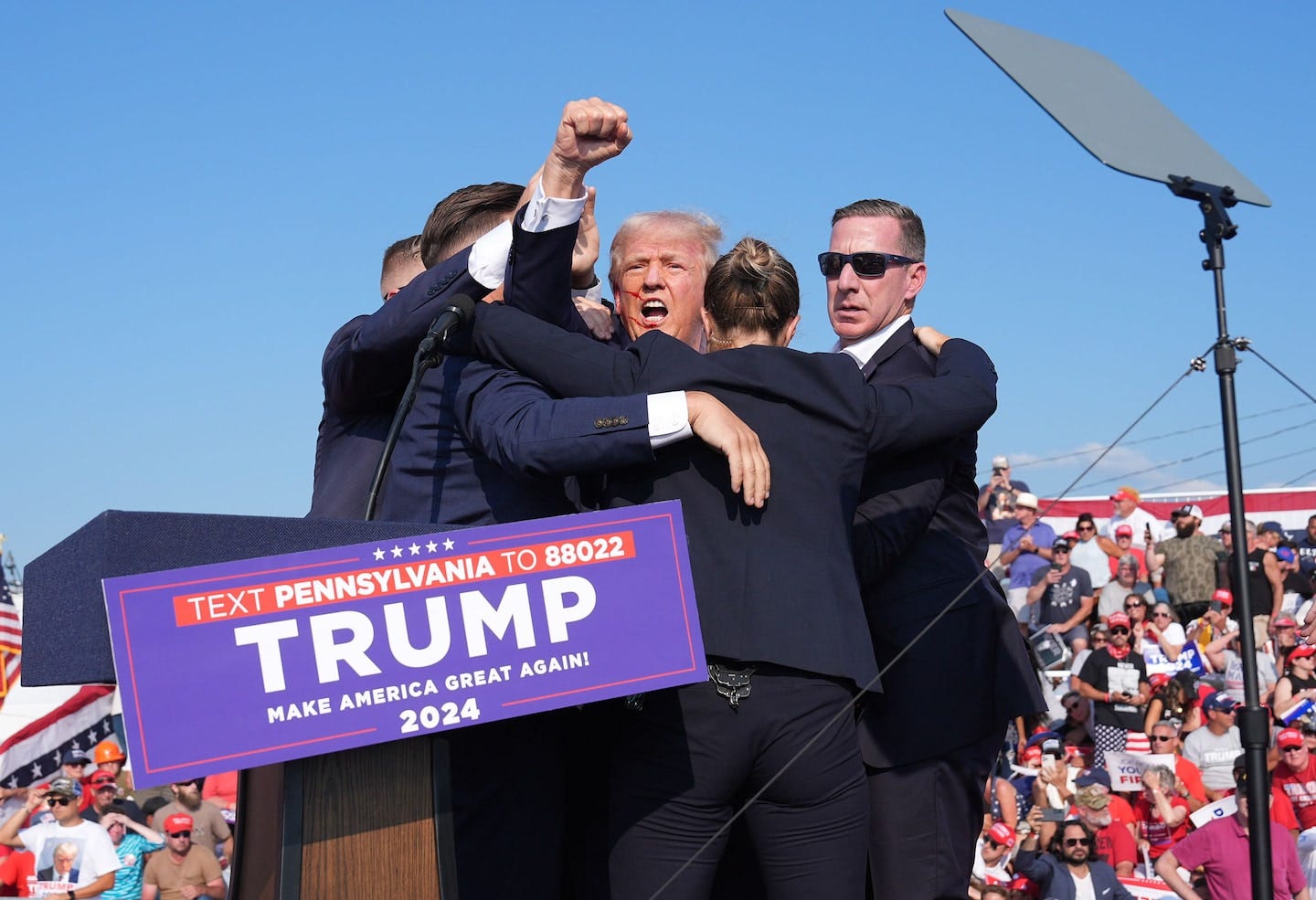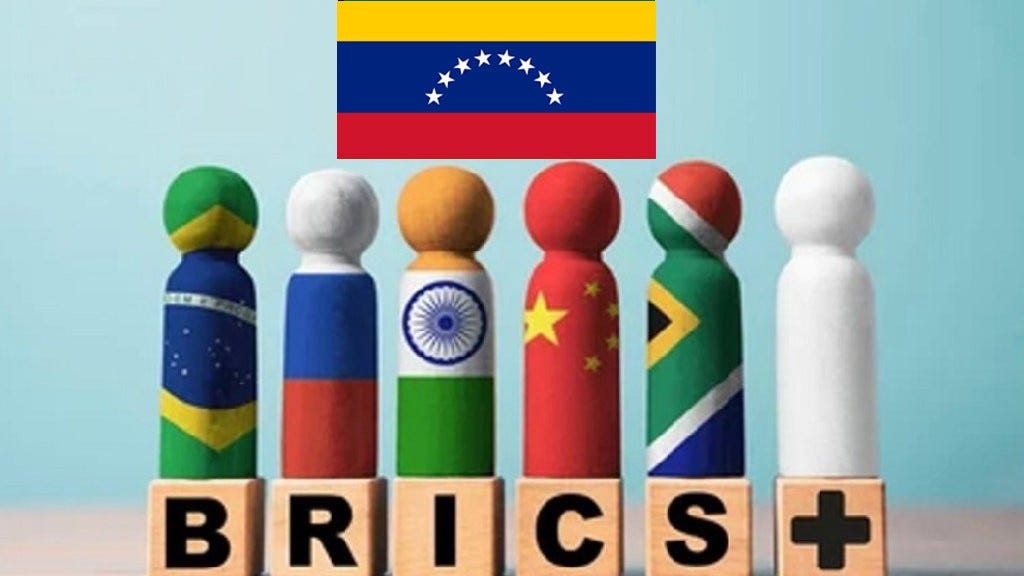Note from Lethal Minds:
Bulletin From The Borderlands is a joint project between Lethal Minds and some of the most talented OSINT analysts and independent journalists working today. Our goal is to provide you with a clear, accurate, and informative view of the world, free from censorship or bias. The Bulletin will bring you the facts, our analysis, and our evidence. We hope you find our work helps you better understand the complicated and increasingly volatile world in which we live.
Be informed, be prepared, be lethal.
The Bulletin Team:
Analyze Educate : Brodie Kirkpatrick (Analyze & Educate) is a Marine Corps infantry veteran. He is a graduate San Jose State University with a Bachelor’s Degree in Political Science. He runs Analyze & Educate, a podcast and associated social media pages discussing geopolitics, armed conflicts, news, and history. In his capacity with Lethal Minds he is the team lead for the Bulletin From the Borderlands, Americas Desk chief, and an editor.
The Expeditionary Intelligence Group : The Expeditionary Intelligence Group Instagram page is a project delivering flash news utilizing open-source intelligence combined with human asset contributions and geographic intelligence to provide the general public with objective bias-free global news that tells the whole story based on the facts and on-the-ground insights they feel are missing from a lot of mainstream news reporting.
The Defense Bulletin: Defense Bulletin is run by John M Larrier. As a civilian, I’ve closely followed strategic developments for close to a decade, but “launched” the Bulletin during the pullout in Afghanistan due to the extreme nature of the misinformation I saw my peers as well as others reading into. The lacuna that the general populace has about these now very prevalent subjects is the stated goal for Defense Bulletin
Robert “Bobby” Acuña is a graduate of Texas A&M University – Corpus Christi with both a BBA in Economics and a BA in Political Science. He was originally born in Subic Bay, Philippines but lived much of his life in Corpus Christi, Texas. He currently resides in Houston, Texas. Growing up in a military family, Robert developed a passion for politics as well as studying war history. Some of his earliest memories were watching World War II documentaries with his grandfather. This led him to his educational path in university. One of his favorite aspects of his collegiate career was political research. His most recent work was with The Modern Insurgent. He believes Bulletin On The Borderlands will help to fulfill that urge to understand and stay consistently aware of the geopolitical issues around the world. Outside of his interest in global affairs, Robert is an avid Brazilian Jiu Jitsu practitioner and rugby player.
ALCON S2: A veteran of the New Zealand military intelligence community, if it walks, talks, or crawls in Asia, ALCON S2 knows about it. Cole is the preeminent source of OSINT for the Oceania and South East Asia region.
Jillian Butler: A lifelong writer and San Diego native. She received her bachelor’s degree in English and History at the University of Ulster in Northern Ireland. Upon moving back to San Diego, she received her master’s in International Relations at the University of San Diego where she centered her research around jihadi terror. She is also a contributing writer for Pop Smoke Media, American Grit, The Modern Insurgent, and Lethal Minds Journal’s Bulletin from the Borderlands. In her free time, she can be found surfing, training jiu jitsu, or improving her craft of cooking the perfect ribeye.
Sponsors
The Bulletin is brought you to by PB Abbate.
As you likely know, Lethal Minds Journal shares common ancestry with Patrol Base Abbate, one of the most impactful veteran’s outreach organizations in America. One of the ways in which we connect is through a love of the written word, a belief in the power of good writing to help give a voice to people who need to be heard, and a desire to help service members and vets connect through self-expression.
In This Issue:
The Americas: Covered in this issue by Brodie Kirkpatrick (Analyze & Educate) and Rickynomics.
The United States witnessed an attempt on the life of former and possibly future President Donald Trump. Multiple investigations have been launched into the incident and at this point there are more questions than answers. In South America, Rickynomics gives us a look at Venezuela’s intriguing dual economic strategies.
Europe: Covered in this issue by Edwin Dudley-Taylor.
While the situation is improving, Ukraine’s defense industrial base continues to struggle in the midst of the Russian invasion. Artillery shells are worth their weight in gold on the zero line and Ukraine is trying to produce more domestically, instead of relying on their Western allies. In the United Kingdom, the Labour Party led by Keir Starmer earned a decisive victory against the Conservatives. Edwin Dudley-Taylor gives us a look at Starmer’s foreign policy.
East Asia and Oceania: Covered in this issue by John M. Larrier (Defense Bulletin).
In recent years Chinese areas of strategic interest have increasingly overlapped with Russia’s. The significant increase in the tempo of Sino-Russian military-to-military cooperation in the Pacific theater of competition is often overshadowed by both nation’s involvement in the ongoing Russo-Ukrainian War. Recent events near Alaska highlight the importance of this strategic partnership.
Central Asia and the Middle East: Covered in this issue by Eric Sheppler.
The Middle East continues to simmer over the latest Israeli-Palestinian War. Fresh fronts in the conflict are on the cusp of opening up, and already ongoing actions in the region are being exacerbated by the war.
Africa: Covered in this issue by Expeditionary Intelligence.
A ceasefire has been enacted in the Democratic Republic of the Congo between military forces and M23 rebels. The stability of the ceasefire is in question with both sides accusing each other of violations.
The Highlight: Assassination Attempt Against Trump
The Americas
Brodie Kirkpatrick, Rickynomics
The Attempt on Trump’s Life
On July 13th, at a rally in Pennsylvania, former President Donald Trump was injured in the first assassination attempt in the first instance of a president being injured in an attempt on their life since President Ronald Reagan in 1981. While many details remain unclear, multiple investigations into the incident have been launched.
Attempted Assassination
Former President Donald Trump held a political rally on July 13th in Butler, Pennsylvania. Trump got on the stage between 18:00-18:30 local time. The former and possibly future president was on stage for roughly 15 minutes before gunfire rang out in the middle of his speech. Roughly half a dozen gunshots were heard during the attack, including shots fired by Secret Service sniper overwatch teams.
Just as the first shots were fired, Trump grabbed his right ear and dropped to the stage. His Secret Service detail surrounded him within seconds. When he stood up, Trump was seen bleeding from his right ear, with streaks of blood also running along the right side of his face. Trump was moved off of the stage and into a vehicle after it was confirmed that the shooter was neutralized.
The former president was taken to a local medical facility and hospitalized for several hours before being released. He landed on board his private plane in Newark, New Jersey later in the night. From the information, pictures, and videos currently available, it appears that the presumptive Republican nominee may have been an inch away from losing his life. A photo from the attack showing what is likely the first round that was fired nearly missing the back of his head.
One person was killed in the attack. He has been identified as Corey Comperatore, 50, a retired firefighter for Buffalo Township, Pennsylvania. In a heartfelt statement on social media, his daughter Allyson hailed him as a loving father, cherished member of his community, and a hero. Comperatore was killed while shielding Allyson and her mother from gunfire. Additionally, David Dutch, 57, of New Kensington, Pennsylvania and James Copenhaverm 74, of Moon Township, Pennsylvania also received gunshot wounds during the attack. Both men are in stable condition.
Details on the Shooter
The FBI has identified the shooter as Thomas Matthew Crooks, 20, of Bethel Park, Pennsylvania. Crooks was a registered Republican, however had not voted in a presidential election due to his age and had made a single $15 donation three years ago to Act Blue, a political action committee committed to assisting Democratic Party campaigns.
Crooks was laying on a rooftop to the north of and no more than 200 meters from the rally stage. His position was on top of one of the few buildings within the immediate area. Multiple media outlets have reported via unnamed government sources that Crooks’ position was outside of the Secret Service security perimeter. Crooks was quickly engaged and killed by Secret Service snipers positioned adjacent to the former president.
Multiple witnesses have told media outlets that they noticed Crooks crawling on the roof of a building and tried to alert law enforcement minutes before the first shots were fired. Some of those witnesses specified that they noticed a firearm in Crooks’ possession. Videos posted to social media corroborate these claims, with rally attendees closer to Crooks’ position observing him while trying to get the attention of nearby police officers.

On Monday, it was revealed that the building Crooks chose as his firing position was designated as the staging area for a local law enforcement tactical team. Secret Service Director Kimberly Cheatle told ABC News that the officers were inside of the building when the shooting occurred. Local outlet Channel 11 News also discovered that a member of the SWAT unit from neighboring Beaver County noticed Crooks positioned on the roof at 17:45 (5:45pm), roughly 30 minutes before the shooting began. That officer reported Crooks as a suspicious person and took a photo of him. Beaver County sent eight officers to the rally, including snipers and spotters. A video focusing on one of the USSS sniper teams showed a sniper notice and take aim at Crooks less than a second before he began shooting.
The weapon Crooks used in yesterday’s attack was an AR-15 style rifle. Little is known about the weapon, other than that it was legally purchased by his father. A search of Crooks’ vehicle uncovered multiple explosives of an unspecified type as well.
Government Reaction
Much can be said about the security situation of the rally. Investigations will no doubt heavily scrutinize the relevant local, state, and federal agencies to determine shortcomings and lessons to be learned. While those investigations are ongoing, it would be unbecoming of this publication to make assumptions regarding the disposition of security personnel and their ability to detect threats in the area. Active duty service members, law enforcement officers, and private security personnel should review footage, witness statements, and investigations from the incident to implement lessons learned into training scenarios.
Investigations have been launched by multiple Congressional committees, including the Senate Homeland Security Committee and the House Oversight Committee. Director Cheatle is expected to testify to the latter in the coming days. Homeland Security Secretary Alejandro Mayorkas has announced an independent review as well. The independent party that will lead the probe is expected to be selected soon.
The Secret Service details for both President Trump and President Joe Biden have been increased since the attack. Additionally, independent candidate Robert F. Kennedy Jr. has been given a USSS detail, according to Mayorkas. RFK Jr.’s requests for a protection detail were denied by the Biden administration throughout the campaign. Director Cheatle has acknowledged the gravity of the situation and the need for review, but is thus far refusing calls for her to resign.
Navigating Dual Economic Paths: Venezuela's BRICS Membership and Dollarization
Venezuela's dual economic strategies of joining the BRICS alliance and embracing dollarization aim to stabilize the economy and diversify international alliances. Joining BRICS seeks to reduce dependency on Western economies and attract new investment opportunities, while dollarization addresses hyperinflation and stabilizes purchasing power. These strategies offer a balanced approach to short-term stabilization and long-term economic growth, but challenges such as high living costs and structural issues persist. The potential election of María Corina Machado could further enhance investor confidence through significant economic reforms, though her candidacy faces legal obstacles. It is also more likely that this dual economic strategy will further exacerbate Venezuela’s already collapsing economic situation.
Navigating Dual Economic Paths: Venezuela's BRICS Membership and Dollarization
Venezuela's recent economic maneuvers highlight a strategic blend of short-term stabilization and long-term positioning. By joining the BRICS alliance and embracing the US dollar, Venezuela addresses its economic challenges on multiple fronts. This complex strategy, involving significant economic shifts, aims to stabilize the nation's economy, diversify its international alliances, and ultimately secure a more resilient economic future.
In 2023, Venezuela applied to join BRICS, which includes Brazil, Russia, India, China, and South Africa. This move represents a significant shift in Venezuela's geopolitical and economic strategy. By joining BRICS, Venezuela seeks to diversify its economic ties, access financial support, and realign geopolitically. Aligning with BRICS opens new markets and investment opportunities, reducing Venezuela's dependence on Western economies and the US dollar. This shift supports Venezuela's stance on greater sovereignty and reduced Western influence. BRICS countries have a history of collaborating on various development projects and financial initiatives, offering mutual support to member nations. For Venezuela, joining this alliance could mean access to a new pool of financial resources and technological cooperation, which are crucial for its economic recovery and growth. The diverse economic landscapes of BRICS nations provide a broad platform for Venezuela to tap into, ranging from technological advancements in India and China to natural resources and agricultural opportunities in Brazil and Russia. Geopolitically, aligning with BRICS supports Venezuela's efforts to reduce Western influence and enhance its sovereignty. This realignment allows Venezuela to forge stronger ties with nations that share a common interest in promoting a multipolar world order, thereby reducing the dominance of any single global power.
This shift could also provide Venezuela with more leverage in international negotiations and economic dealings, enhancing its strategic position on the global stage.
Conversely, Venezuela's decision in 2020 to allow the use of US dollars addresses pressing economic issues that require immediate solutions. The severe devaluation of the Bolivar, Venezuela's national currency, has led to hyperinflation, making it nearly impossible for citizens to afford basic necessities. To combat this, the Venezuelan government allowed the use of US dollars in everyday transactions.

Dollarization has stabilized purchasing power for Venezuelans, making it easier for them to buy goods and services. This move has brought a semblance of stability to an economy that was otherwise spiraling out of control. Businesses, too, have benefited from this decision, as it has facilitated smoother international transactions and debt settlements. The stability provided by the US dollar has enabled businesses to operate more effectively, contributing to the revival of economic activity. However, the process of dollarization has led to a situation where living costs in Venezuela have become higher than in the USA. The economic collapse, driven by political instability, mismanagement, and a significant drop in oil prices, resulted in hyperinflation and a devalued Bolivar. Many businesses and individuals in Venezuela turned to the US dollar, which, while bringing stability, also caused prices of goods and services to remain high, resulting in a higher cost of living. For example, a family of four faces estimated monthly costs of around $2,564 without rent, and a single person’s estimated monthly costs are about $1,112 without rent. The minimum wage in Venezuela is around $6, and the average salary is approximately $175.99. These high costs, coupled with low wages, have exacerbated economic disparity.
The black market for US dollars in Venezuela has flourished due to currency controls and a shortage of US dollars. The black-market exchange rate is significantly higher than the official rate, making it difficult for many Venezuelans to afford goods and services. For example, in 2019, the official exchange rate was around 60 Bolivars per US dollar, while the black-market rate was around 10,000 Bolivars per US dollar. This discrepancy highlights the challenges Venezuelans face in accessing stable currency through official channels. Additionally, Venezuelans have increasingly turned to cryptocurrencies for remittances, recording over $460 million in the last 12 months.
Cryptocurrencies provide an alternative means of transaction, particularly for sending and receiving money from abroad. This surge in crypto remittances reflects a broader trend in Latin America, driven by economic difficulties and migration. However, the Venezuelan government's own cryptocurrency, the Petro, has not gained significant popularity despite being promoted as a solution to the economic crisis. Many Venezuelans prefer other cryptocurrencies, which they find more reliable and accessible. This preference for alternative cryptocurrencies over the Petro highlights the challenges the government faces in implementing its digital currency strategy.
These seemingly divergent approaches—dollarization and joining BRICS— complement each other when viewed through their respective lenses of short-term and long-term benefits. Dollarization acts as a practical solution to stabilize the economy and relieve immediate pressures. By allowing the use of US dollars, the government has provided a temporary relief mechanism that stabilizes the economy and ensures citizens can access essential goods and services. In contrast, joining BRICS represents a strategic effort to reduce dependency on the US dollar and foster diverse economic partnerships. This long-term strategy aims to integrate Venezuela into a broader economic network that can provide sustainable growth and resilience against external economic shocks. The combination of these strategies reflects a nuanced understanding of Venezuela's economic environment and geopolitical dynamics.
Venezuela's dual strategy avoids the pitfalls of contextual bias by recognizing the broader implications of its economic strategies and avoiding narrow, short-term assessments. Simplifying daily transactions through dollarization effectively manages immediate economic challenges, while aligning with BRICS paves the way for future economic stability and growth. Venezuela’s approach blends aspects of different economic models, tailored to its unique context rather than blindly imitating any one system. This pragmatic approach considers the specific needs and challenges of the Venezuelan economy, integrating elements from both capitalist and socialist models to create a balanced economic strategy. Managing strategic visibility on the global stage avoids undue attention from adversaries. By aligning with BRICS and reducing dependency on the US dollar, Venezuela strengthens its geopolitical position while maintaining a degree of strategic ambiguity. Leaders focus on initiatives that align with strategic goals, avoiding unnecessary tasks that detract from meaningful progress. This focus ensures that the government's efforts are directed towards achieving long-term economic stability and growth.
By joining BRICS and adopting dollarization, Venezuela attempts to address its economic challenges with a balanced approach. While dollarization offers short-term stability, BRICS membership positions Venezuela for sustainable long-term growth. This pragmatic strategy, if managed well, can help Venezuela navigate current crises and work towards a more resilient economic future. Effective management and continuous adaptation of these strategies will be crucial for Venezuela to stabilize its economy and secure a more sustainable path forward.
Analyst Comment: What Does This Mean for Expats and Investors?
Prospective expats, digital nomads considering Venezuela as a destination to stretch their money further, and foreign investors evaluating the market must consider significant factors.
While dollarization provides some stability, the cost of living can be unexpectedly high, with goods and services often priced in US dollars and inflated due to persistent hyperinflation. Additionally, Venezuela's ongoing economic instability, high crime rates, and lack of infrastructure can impact the quality of life for expats and digital nomads.
The severe brain drain and reduced local capacity for innovation and growth further exacerbate these challenges.
From a foreign investment perspective, Venezuela presents a challenging environment. Despite attempts to stabilize the economy through dollarization, persistent hyperinflation driven by structural issues and instability of the Bolivar undermines confidence in the market. Significant public debt and chronic fiscal deficits indicate potential financial instability, deterring long-term investment. The ongoing emigration of skilled professionals due to economic hardship exacerbates the brain drain, reducing the local capacity for growth and innovation.
These factors collectively make Venezuela a high-risk destination for both foreign investors and individuals looking to relocate, who may seek more stable and predictable environments. Careful assessment of these risks is crucial in determining whether the potential benefits outweigh the broader economic and social challenges.
Analyst Comment: Green Flag Scenario for Potential Investment in Venezuela
The potential election of María Corina Machado as President of Venezuela offers a promising environment for investors due to her commitment to significant economic reforms and market liberalization. Machado's agenda includes reducing government intervention, privatizing state-owned enterprises, and fostering a competitive market environment, which could drive economic growth and innovation. She plans to tackle hyperinflation by establishing an independent central bank to stabilize the Bolivar, thereby restoring confidence in the national currency and creating a predictable economic climate. Machado aims to diversify beyond oil into sectors like agriculture, manufacturing, and services, building a more resilient economic structure with multiple investment avenues. Re-engaging with international financial institutions and negotiating new trade agreements are key to opening new markets and attracting foreign direct investment. Machado's robust anti-corruption measures and improved governance efforts aim to create a favorable business environment, enhancing investor confidence. However, it is unlikely she will win since she is not officially on the ballot due to legal and political obstacles
Looking Forward
Details regarding the assassination attempt against the former president will continue to roll out as the days go by. The attack on Saturday will become a pivotal moment in the history of the country and will also serve as a case study for government agencies and security entities for years to come. In Venezuela, observers will be examining the results of the economic strategy at play. However, a second Trump administration will likely bring additional sanctions and scrutiny on Venezuela, in the likely event that President Maduro is re-elected this month. To an extent, the country’s economic future depends on the outcome of both elections this year.
Keep reading with a 7-day free trial
Subscribe to Lethal Minds to keep reading this post and get 7 days of free access to the full post archives.








